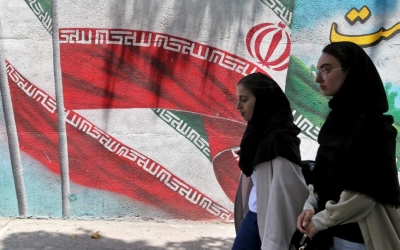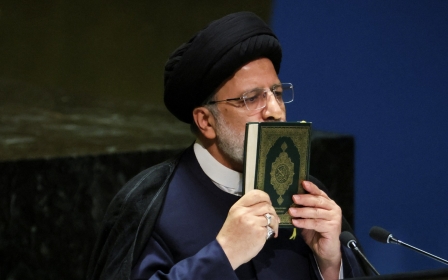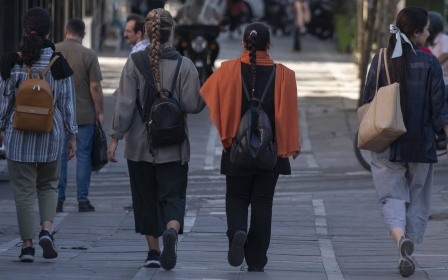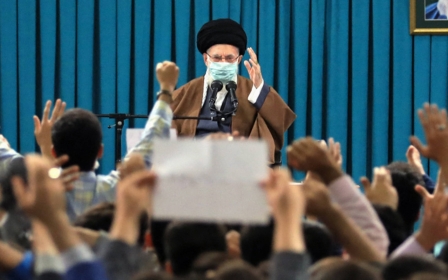Iran: Teenage girl hospitalised after morality police beating, says rights group

A 16-year-old girl has been left in a coma after Iranian "morality police" attacked her at a train station for not wearing appropriate hijab, according to a human rights group.
Armita Garawand, originally from western Kermanshah province, was accosted by officers on the Tehran Metro over an alleged violation of the country's strict dress code.
Sources told the Hengaw Organisation for Human Rights that she suffered severe injuries and was taken to Fajr Air Force Hospital. They added that there was a heavy security presence around her room and that no visits were being allowed, even by family members.
"Ever since the incident of Armita’s situation has gone viral, all state-affiliated media outlets have systematically denied the physical assault on this young girl, and government officials have claimed that no physical altercation took place," reported the rights group.
"These claims are solely based on a short, cropped video from an exterior angle of the train."
They added that state-run media, citing Tehran Metro authorities, claimed that Garawand had "fainted due to low blood pressure".
Headscarf repression
The incident comes just weeks after the anniversary of the death of Kurdish-Iranian woman Mahsa Amini, whose death was also attributed to the morality police.
Her death - which official sources claimed was due to a heart problem - sparked off widespread protests in Iran, which saw more than 500 people killed, numerous executions, and tens of thousands imprisoned.
Despite the anger at the Islamic Republic's headscarf laws, the government has refused to budge and has implemented stricter rules to crackdown on the increasing number of women going without hijab in public.
Legislation passed last month means men and women found wearing "indecent attire" in the street face fines categorised as the "sixth degree" for initial offences, followed by the "fifth degree" for subsequent transgressions.
Though some commentators have drawn parallels between Amini's death and Garawand's injuries, many of those who took part in last year's protests are wary of returning to the streets following the severity of the government crackdown.
One former protester, who was blinded in one eye by the security forces, told Middle East Eye last month that the trauma of the crackdown had dissuaded many.
"I don't think protests like last year will be repeated in Iran. I and other young Iranians went to the streets last year to change this awful situation and tell the regime officials that we don't want them," he said.
"But we lost and they won."
Middle East Eye propose une couverture et une analyse indépendantes et incomparables du Moyen-Orient, de l’Afrique du Nord et d’autres régions du monde. Pour en savoir plus sur la reprise de ce contenu et les frais qui s’appliquent, veuillez remplir ce formulaire [en anglais]. Pour en savoir plus sur MEE, cliquez ici [en anglais].





